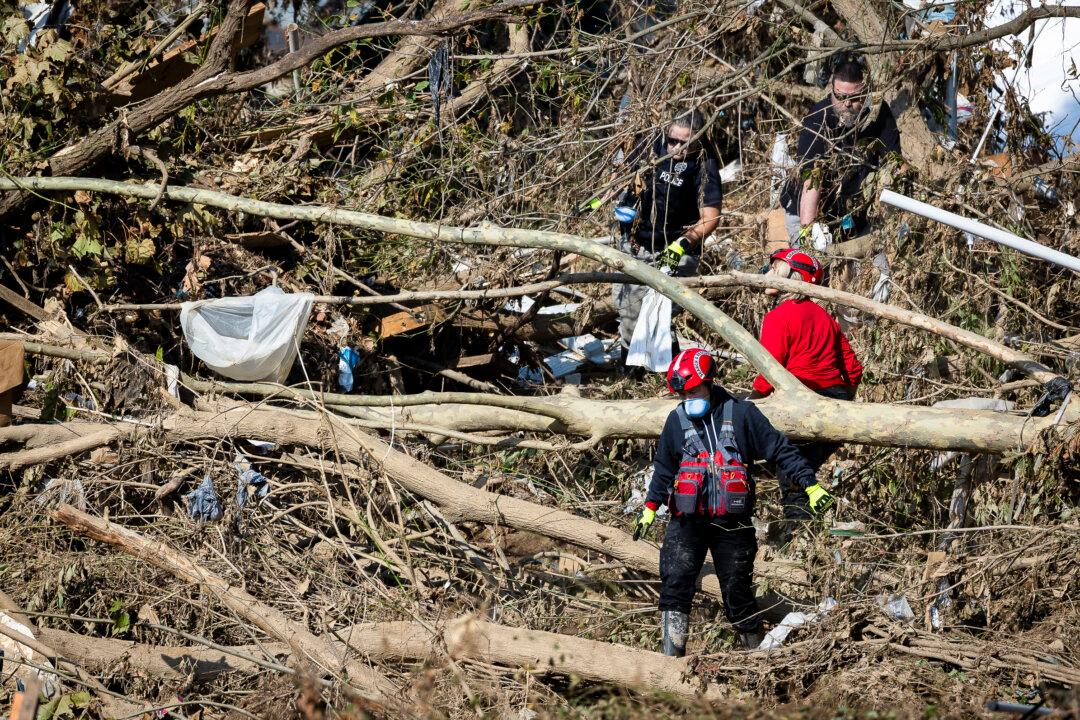At least 92 people are still missing in North Carolina nearly three weeks after Hurricane Helene ripped through the western part of the state and left a trail of destruction, Gov. Roy Cooper said.
Cooper gave the figure during a news conference on Oct. 15 alongside officials from the state emergency management agency, the National Guard, the Public Safety Department, and the Federal Emergency Management Agency (FEMA).




